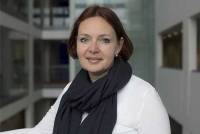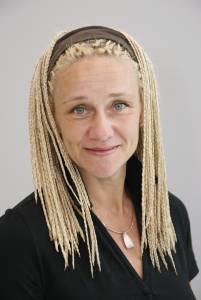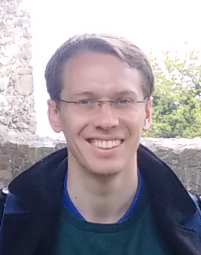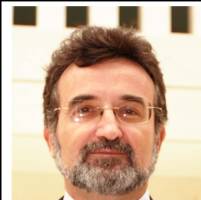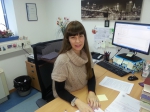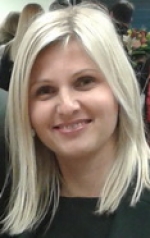NICE Academy 2019 in Split from October 9-12, 2019
"Innovative Approaches to Career Guidance and Counselling"
Career guidance and counselling is a vibrant practice, which includes diverse professional roles and responsibilities (career counselling, career education, career assessment and information, career service management & social systems interventions). Over the past years, many new approaches have been introduced and tested to improve career support for diverse citizen groups, inspired both by new technologies and other practices. The main learning aim of this year’s academy will be to introduce participants to a wide range of innovative approaches, which they can embrace in their practice (as practitioners) or training programs (as academic trainers).
Benefits for Participants
- Knowledge of diverse new approaches to career support
- Empirical findings on the appropriateness of diverse approaches for different groups
- Discussions with practitioners and academic trainers on innovative approaches to career support
- Practical applications of new approaches in diverse training workshops and interactive lectures
- Supervision on career support or academic training
- Structured networking activities to build international, trans-disciplinary connections
Interactive Keynotes Lectures
Julia Yates: "Acceptance and Commitment Therapy: Adding Value to Contemporary Career Conversations"
Acceptance and Commitment Therapy (ACT) helps clients to commit to living a values-driven life, and reduces the impact that negative thoughts and feelings have by increasing psychological flexibility. Based on relational frame theory, ACT has been shown to reduce anxiety, increase motivation and help people to identify their values and goals. In this session Julia will explain the principles of ACT, summarise the most relevant empirical evidence, and introduce a technique for using ACT within a one-to-one career guidance session.
Dr Julia Yates works at City, University of London, where she runs the MSc in Organisational Psychology. Julia worked as a career guidance practitioner in schools and universities for 15 years before moving to the University of East London to teach Career Guidance in 2011. Julia’s research interests are in career decision making, the career paths of women, and the application of coaching tools to careers work, and she has written two books on this topic The Career Coaching Handbook published in 2014 and The Career Coaching Toolkit published last year. Alongside her academic career, Julia continues to practice as a career coach, specialising in the careers of women returning to work after a career break.
Jaana Kettunen: "ICT in Career Services - From Delivering Information to Co-Careering"
As technological advances change how individuals explore and acquire information about education, training and work opportunities, there is a pressing need to align new technologies more closely with career services and associated professional practices. New technologies and social media offer significant opportunities for career services, but they also create demand for new competency among career practitioners. In this session Jaana presents an empirically derived conceptual framework to capacity building, taking into account that ICT is used both on a self-help basis and as part of face-to-face and distance service delivery. Practical examples and strategies for developing the necessary skills and competencies for using ICT and social media are presented and discussed.
Dr Jaana Kettunen is a Vice-director and Researcher at the Finnish Institute for Educational Research of the University of Jyväskylä. In her work she has been focusing on the design and pedagogical use of information and communications technology (ICT) in learning and working environments. Her current research focuses on the career practitioners´ ways of experiencing and conceptualizing social media in career services, and aspects that are seen as critical in the successful use of these new technologies in career services. Recently her research has also looked into the ethical practice in social networking and in the role of ICT in relation to national lifelong guidance policies.
Programme
Day One | Wednesday, October 9 | Room |
17.00 – 20.00 | Walk in registration and reception; appreciative inquiry and other interactive methods: participants mingle and get to know each other | Lobby |
Day Two | Thursday, October 10 | |
8.30 – 9.00 | Further registration | Lobby |
9.00 – 9.30 | Opening of the academy and introduction into the topic of this years’ NICE Academy | Small Amphitheatre |
9.30 – 10.30 | Interactive Keynote Lecture by Dr Julia Yates: "Acceptance and Commitment Therapy: Adding Value to Contemporary Career Conversations" (Introduction by Dr Anne Chant) | Small Amphitheatre |
11.00 – 12.30 | Parallel Workshops | |
1. To See or Not To See - Stepping Out of Your Comfort Zone for True Inclusion (Jeanine van Halteren) | RC (2nd Floor) | |
2. Postmodern Career Counselling Interventions: A Meaning-centred Approach (Laurent Sovet, C. Arnoux-Nicolas, N. Baatouche, M. Baudé, & J.-L. Bernaud | D13 (3rd Floor) | |
3. Establishing Practitioner-led Research Processes: Integrating Labour-market Research into Practitioner Training (Emma Bolger) | D12 (3rd Floor) | |
4. Upravljanje Ljudskim Resursima i Rad sa Zaposlenicima Starijima od 50 (Master Class Part I with Srecko Goic) | Vijećnica 3 (2nd Floor) | |
12.30 – 13.30 | Lunch | Upper Lobby |
13.30 – 15.00 | Structured space for cooperation; a place where participants can work on research cooperation, European project development around career guidance and counselling, development of future NICE activities, etc. | DKU, D12, D13 (3rd Floor) |
15.30 – 17.00 | Parallel Presentations and Discussions | |
1. Session on Innovative Services and Strategies a) A Tool for a University's Employability Strategy (Andreas Eimer) b) Contact Points for People Who Gained Professional Qualifications Abroad (Milica Tomic-Schwingenschlögl) | D13 (3rd Floor) | |
2. Session on Innovating Counselling Approaches a) Working with 'Calling' in Career Development Practice (Gill Frigerio) b) Rational-Emotive Behavior Therapy Career Intervention for High School Students (Viktoria Kulcsar, C. Ivan, R. Balaszi & A. Dobrean) | D12 (3rd Floor) | |
3. Upravljanje Ljudskim Resursima i Rad sa Zaposlenicima Starijima od 50 (Master Class Part II with Srecko Goic) | Vijećnica 3 (2nd Floor) | |
20.00 – | Conference Dinner | |
Day Three | Friday, October 11 | |
9.00 – 9.15 | Looking back at yesterday and linking it to the programme if the day | Small Amphitheatre |
9.15 – 10.30 | Interactive Keynote Lecture by Dr Jaana Kettunen: "ICT in Career Services: From Delivering Information to Co-Careering" | Small Amphitheatre |
11.00 – 12.30 | Parallel Workshops | |
1. Illuminating the Blind Spot: Language on Learning in the Career Guidance and Counselling Practice (Christer Langström & Asa Sundelin) | RC (2nd Floor) | |
ESVDC Collage Workshop: An Alternative Approach to Interviewing for Interpretive Research in Career Guidance and Counselling (Hazel Reid & Anne Chant) | D13 (3rd Floor) | |
3. Innovative Integrated E-Learning Platform for Estonian and Finnish University Career Counsellor Students (Ari Jussila, K. Koiv, T. Peitel & O. Rantanen) | D12 (3rd Floor) | |
4. Upravljanje Ljudskim Resursima i Rad sa Zaposlenicima Starijima od 50 (Master Class Part III with Srecko Goic) | Vijećnica 3 (2nd Floor) | |
12.30 – 13.30 | Lunch | Upper Lobby |
13.30 – 15.00 | Methods & research market; an interactive space where you both can share and be inspired by the methods and/ or research from the other participants … without formal presentations! | DKU, D12, D13 (3rd Floor) |
15.30 – 17.30 | Parallel Supervision Groups and Workshops | |
1. Supervision for Career Practitioners (Yvor Broer) | RC (2nd Floor) | |
2. Supervision on Statistics and Quantitative Research (Czeslaw Noworol) | D13 (3rd Floor) | |
3. Challenging Situations in Career Guidance and Counselling - How Important Are Social Competences (Johannes Katsarov / EU-Project STRENGTH) | D12 (3rd Floor) | |
4. Istraživanje Emotivnih Zastoja i Izazova Prilikom Perioda Tranzicije u Procesu Karijernog Savetovanja Odraslih (Ružica Madžarević & Ivana Vulić) | Vijećnica 3 (2nd Floor)
| |
19:00 – 20:00 | Guided Tour of Split's Old Town | |
20:00 – 21:30 | Dinner in the Gallery | |
Day Four | Saturday, October 12 | |
9.00 – 9.15 | Looking back at yesterday and linking it to the programme if the day | Small Amphitheatre |
9.15 – 10.15 | Plenary praxis dialogues; a guided (plenary) dialogue between two practitioners on challenges and faced working with clients, followed by reflections on that conversations by two researchers, in a narrative fashion. This structure is also known as fish-bowling. | Small Amphitheatre |
10.15 – 12.00 | Collaborative group work on innovation in practice and academic training, in smaller groups. Outcomes will be presented during the following session. | DKU, D12, D13 (3rd Floor) |
12.00 – 12.30 | Summary of the previous sessions, the academy as a whole and closing of the academy |
Training Workshops
Participants can choose from several training workshops, which will be offered in parallel for different target groups. Please click on the workshop titles for more information.
Training Workshops in English
Workshops for Practitioners | Mixed Audience Workshops | Train-the-Trainer Workshops |
"To see or not to see – Stepping out of your comfort zone for true inclusion" Jeanine van Halteren, Oslo Metropolitan University, Norway
|
"ESVDC Collage Workshop: An Alternative Approach to Interviewing for Interpretive Research in Career Guidance and Counselling"
Hazel Reid & Anne Chant, Canterbury Christ Church University, UK | Emma Bolger, University of West Scotland, UK |
"Illuminating the blind spot: Language on learning in the career guidance and counselling practice" Christer Langström & Åsa Sundelin, Stockholm University, Sweden | "Postmodern career counselling interventions: A meaning-centered approach" Laurent Sovet, Caroline Arnoux-Nicolas, Nadia Baatouche, Mathilde Baudé & Jean-Luc Bernaud, Paris Descartes University & Conservatoire National des Arts et Métiers, France |
Kristi Kõiv, Triin Peitel, Ari Jussila & Outi Rantanen,University of Tartu, Estonia & Tampere University of Applied Sciences, Finland |
Training Workshops in Local Languages
Master Class (3 Sessions) | Mixed Audience Workshop | |
"Upravljanje ljudskim resursima i rad sa zaposlenicima starijima od 50" (Master Class on HR management and work with employees over 50; in local language) Srećko Goić, Ekonomskog fakulteta Sveučilišta u Splitu | "Istraživanje emotivnih zastoja i izazova prilikom perioda tranzicije u procesu karijernog savetovanja odraslih" (Workshop on dealing with emotional impasse and transitional challenges; in local language) Ružica Madžarević i Ivana Vulić, Euroguidance Centar Srbija |
Registration Fee
The registration fee covers food and drinks at the academy, the programme, and other printed materials. All prices include 25% VAT.
Early-Bird (until July 31) | Standard | |
Regular | € 275,00 | € 300,00 |
Founders (1) | € 250,00 | € 275,00 |
Special Rate (2) | € 125,00 | € 125,00 |
(1) Founders are registered supporters of the NICE Foundation, either individuals or representatives of institutional founders (e.g., universities or professional associations). For an overview of the relevant bodies, please consult http://www.nice-network.eu/founders/
(2) The special discount is available for participants with very low budgets, e.g., unemployed students or practitioners with relatively low incomes. Please request a special discount via email to the organizers.
Organisation of NICE 2019
Scientific Committee
- Dr Anne Chant (Canterbury Christ Church University, UK),
- Prof Dr Lea Ferrari (University of Padova, Italy),
- Dr Rebeca Garcia Murias (University of Applied Labour Studies Mannheim, Germany),
- Prof Dr Monika Kil (Danube University Krems, Austria),
- Prof Dr Czeslaw Noworol (Jagiellonian University Krakow, Poland),
- Dr Peter Kruythoff (Career Management Institute, The Netherlands),
- Prof Dr Monika Petermandl (Danube University Krems, Austria), and
- Prof Dr Hazel Reid (Canterbury Christ Church University, UK / European Society for Vocational Designing and Career Counseling, Switzerland)
December 10, 2019 (Johannes Katsarov)
Evaluation of the NICE Academy in Split
The second NICE Academy took place at the University of Split in Croatia from October 9-12, hosted by Prof Srecko Goic. The academy was organized by the NICE Foundation in collaboration with the Faculty of Economics of the University of Split, Yvor Broer from In Dialogue, and the European Society for Vocational Designing and Career Counseling (ESVDC). It was attended by 78 participants from 24 countries. Focussing on "Innovative Approaches to Career Guidance and Counselling", the academy included two interactive keynote lectures by Julia Yates (UK) and Jaana Kettunen (Finland), a variety of training workshops and presentation sessions from which participants could choose, as well as diverse learning and networking activities (see Programme here).
Fortythree of the delegates (55%) participated in an anonymous online evaluation of the academy between Oct. 28 and Dec. 9, 2019. Asked, how high the chance is that the participants would recommend a NICE Academy to a colleague on a scale from 1 (definitely not) to 10 (definitely), average satisfaction rating was 9.1 (SD = 1.4).
Moreover, we asked the participants, which impact the academy had had on them and their practice, asking ten impact questions (yes/no). 84% of respondents said that their knowledge about innovative methods for career support had increased through the academy. 77% of respondents indicated that they had formed new, international friendships or relationships through the event. 74% suggest that they identified approaches or practices that they want to adopt in their own practice and 72% suggest that the academy helped them to develop new ideas on how to innovate their practice. 58% of respondents found partners for future projects, indicating the large interest in international collaboration. More rarely, participants indicated that they now felt more competent in innovating their organization's services in the future (44%), that their confidence in improving their own practice had grown (33%), that their attitudes towards the use of ICT in career guidance and counselling had changed (28%), that they found solutions for problems or challenges they had been facing (19%) or that they had changed their attitudes towards clients' emotions in counselling (16%). On average, respondents indicated that they had experienced an impact in five ways (SD = 3.1).
Looking at the qualitative and quantitative feedback, participants particularly enjoyed the informal atmosphere of the academy, the networking activities, the keynotes and the training workshops, as well as the extracurricular activities like a tour through Split's old town through our host, a gala dinner and a buffet at the gallery of modern art. Respondents found the program well-balanced, on average, with the main impression being that there could have been more of everything (some people suggested to extend the academy, whereas others preferred the length). We also received a couple of helpful suggestions for improvements, e.g., in the selection of rooms for networking activities.
We are very happy about this positive feedback and hope that we manage to keep up this level of satisfaction in the future and improve the quality of our events even further. We thank all contributors and participants for the lively interactions and the fascinating exchanges, which let us look forward to the next academy in Paris ourselves.
